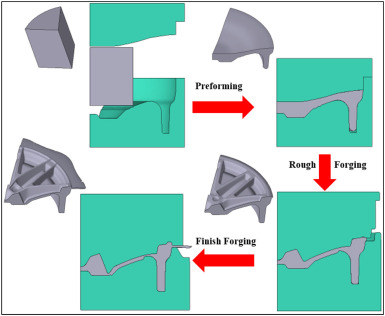Fueling climate innovation and building a sustainable future with Deloitte UK

UK Cleantech Innovation and the Energy Transition
The march toward a net-zero future is filled with tricky parts and tangled issues. Amid growing concerns about climate change and the pressure to decouple society from fossil fuel dependence, cleantech scale-ups are emerging as key players in the transformation of the energy market. In my opinion, the recent Fast 50 CleanTech Award shines a light on businesses that are not only tackling these complicated pieces but also reshaping how we view sustainability and cost efficiency in energy consumption.
At a time when products and services must put the planet first, companies with a focus on essential green credentials are taking bold steps. The Fast 50 CleanTech Award, which highlights some of the United Kingdom’s most promising scale-ups, brings attention to innovative entrepreneurs who are finding creative ways to solve climate issues and drive economic growth through sustainable practices.
Changing the Landscape: From Traditional Energy to Renewable Alternatives
The traditional energy market, long driven by legacy systems and unpredictable costs, can sometimes present overwhelming obstacles. Many consumers have found it off-putting to rely solely on big names that are burdened by these existing market dynamics. A notable shift is underway, where companies are taking a closer look at how to reduce costs, both for businesses and individuals, through renewable energy alternatives.
For instance, UrbanChain, a scale-up based in Manchester, is leading the way by reimagining how renewable energy is bought and sold. Instead of being chained to large, unpredictable providers, UrbanChain has developed a platform where consumers can purchase clean power directly from local producers. This approach not only stabilizes prices but also gives control back to the people, democratizing the energy market in a way that makes energy more affordable for everyone.
Direct Consumer Renewable Energy Purchasing in the UK
UrbanChain’s business model disrupts the traditional pathway of energy distribution by cutting out the middlemen. This direct-from-producer system represents one of the key trends in digital transformation on renewable energy. The organization is working its way through a range of tangled issues, from the fine points of data transparency to ensuring secure and transparent transactions in a market that has long been dominated by legacy practices.
Key benefits of this innovative model include:
- Transparent pricing that bypasses traditional intermediaries
- Direct engagement between local producers and consumers
- Stabilized energy prices and cost predictability
- Opportunities for local communities to benefit from renewable investments
Such developments are critical for the UK’s effort to meet its net-zero targets, demonstrating a concrete solution to energy challenges that have, at times, seemed intimidating for both consumers and industry stakeholders.
Digital Transformation in Smart Sustainable Building Management
In a similar vein, other cleantech entrants like Utopi are innovating by converting traditional energy management systems in buildings into smart, digital platforms. Based in Glasgow, Utopi offers an innovative solution that extracts live data from multi-tenant spaces, allowing building owners and occupants to see how well they perform against essential ESG standards. The platform integrates analytics, energy control tools, and even a residents’ app, ensuring that real-time energy consumption data is at everyone’s fingertips.
This approach to digital transformation in building management not only enhances the quality of the indoor environment but also translates into lower bills and improved energy efficiency. It’s a perfect example of how technology can be leveraged to address both environmental issues and everyday cost concerns, making sustainable living both practical and financially rewarding. In many ways, Utopi’s focus on smart sustainability highlights an important trend in modern construction and urban planning—one where the green credentials of a building are just as important as its architectural design.
Smart Energy Management in Multi-Tenant Buildings
The smart building sector is ripe for innovation, with Utopi showing that energy data can be turned into a tool for significant cost savings and environmental improvements. Key aspects of their strategy include:
- Live data analytics for real-time insights
- Enhanced control over heating, lighting, and power systems
- Encouraging sustainable behavior through user-friendly applications
- Reducing overall energy costs while contributing to climate action
By making these subtle details accessible in everyday operations, Utopi is changing how both residents and building managers think about energy consumption. This approach not only contributes to lowering operational costs but also plays a significant role in reducing the carbon footprint of buildings across the country.
Overcoming the Tricky Parts of Scaling Up Clean Technology
Every innovative business faces its share of challenges when trying to shake off the restrictions of the market. For cleantech companies, these tricky parts include educating consumers about new practices, dealing with the tangled issues of regulatory frameworks, and managing the hidden complexities of global supply chains. Despite these nerve-racking obstacles, the entrepreneurs behind these ventures have shown tremendous grit and adaptability.
Both UrbanChain and Utopi, along with other cleantech high-fliers celebrated in the Fast 50 CleanTech Award, have navigated a path through an environment full of problems. Their ability to find innovative solutions without being weighed down by traditional thinking is a testament to the importance of agility and a forward-thinking mindset in today’s business world.
Innovative Strategies for a Low-Carbon Economy
To work through the tricky parts of scaling up, these companies have adopted several innovative strategies:
- Leveraging Local Networks: By focusing on community-driven solutions, businesses like UrbanChain mitigate the challenges of centralized energy distribution.
- Digital Platforms and Data Analytics: Utopi’s success underscores the impact of digital transformation and the effective use of analytics to manage energy consumption, even within complex multi-tenant environments.
- Strategic Partnerships: Collaborating with renewable technology suppliers and energy producers has been critical for overcoming nerve-racking market conditions and achieving rapid growth.
- Consumer Empowerment: Offering direct access to renewable energy helps strip away intimidating barriers and allows consumers to take better control of their energy expenditures.
These points illustrate how overcoming the nerve-racking twists and turns of the energy market requires a combination of technology, community engagement, and innovative business models. It is a potent reminder that growing a low-carbon economy is not simply about having the right technology—it’s also about rethinking traditional roles in the energy ecosystem.
Cleantech Scale-Ups: Driving Economic Growth and Job Creation
It is well understood that economic growth and job creation often go hand in hand with technological innovation. The Fast 50 CleanTech Award not only recognizes companies making strides in sustainability but also highlights their role as drivers of economic activity. Scale-ups like UrbanChain and Utopi are generating jobs, attracting significant investment, and setting benchmarks for others in the industry.
Local economies across the United Kingdom are beginning to see how clean technology can stimulate employment and foster talent. Through entrepreneurial spirit and innovation, these companies show that it is possible to create win-win situations where economic progress aligns with the objective of preserving the environment.
Economic Benefits of Cleantech Innovation in the UK
Beyond the immediate environmental benefits, fostering a market for cleantech scale-ups offers several economic advantages:
- Attracting Investment: With substantial funding rounds—as seen with UrbanChain amassing over £10 million and Utopi raising £6.42 million—investors are increasingly confident in the return prospects of businesses that prioritize a cleaner future.
- Job Creation: The rapid growth experienced by these companies underscores their contribution to the job market, providing opportunities in tech, engineering, and customer service spheres.
- Strengthening Local Economies: With platforms that directly serve local communities, these scale-ups are reinforcing the economic resilience of smaller regions as they participate in the larger national effort to reduce carbon emissions.
- Enhancing Competitiveness: As businesses adapt to a new market characterized by enhanced digital tools and improved energy efficiency, they become better prepared for the competitive twists and turns of the global marketplace.
This multifaceted growth not only represents a directional shift in consumer priorities but also demonstrates how a sustainable approach to business is becoming super important for future economic policy considerations.
The Role of Awards in Accelerating Clean Technology Adoption
Recognition plays an essential role in shaping an industry. Awards like the Fast 50 CleanTech serve not simply as commendations for innovative business practices but also as a rallying cry for further advancements in the field. Such accolades have a twofold purpose: they validate the efforts of companies pioneering in these challenging markets and provide them with greater visibility that can lead to more significant investments and partnerships.
For entrepreneurs, these awards are a checkpoint that reassures investors and stakeholders that the path they have chosen—despite its nerve-racking and complicated pieces—is indeed a viable one. In many ways, public recognition through awards helps potential customers and partners to dive in with confidence, knowing that these companies have been rigorously vetted and are indeed out to make a positive impact on both the environment and the economy.
The Impact of Industry Recognition on Business Growth
Industry recognition has far-reaching effects on the growth trajectory of a company. Considering the Fast 50 CleanTech Award, several observable impacts include:
| Key Impact | Description |
|---|---|
| Market Validation | Award winners gain credibility, assuring investors and clients of their solid business model. |
| Increased Visibility | Such recognition creates a spotlight effect, helping companies reach a broader audience. |
| Investment Opportunities | Award-winning companies are more attractive to investors keen on supporting sustainable growth. |
| Partnership and Collaboration | Recognition leads to new alliances and collaborations with technology and renewable energy providers. |
These benefits not only reinforce the companies’ positions within their respective markets but also encourage a continuing cycle of innovation. In this way, awards help build an ecosystem where every success story inspires the next generation of cleantech entrepreneurs.
Tackling Regulatory and Market Challenges with Innovative Solutions
The journey toward a sustainable, low-carbon future is riddled with tension and full of problems that require creative solutions. Industry veterans often warn that transitioning to renewable energy is not without its nerve-racking regulatory twists and turns. However, cleantech companies are increasingly demonstrating that working through these challenges is possible through smart technology, agile thinking, and the willingness to reject outdated, legacy systems.
Industries such as renewable energy and building management have long been governed by complex regulatory frameworks. Today, however, digital platforms are emerging as a powerful tool for solving many of these problems. Platforms like UrbanChain and Utopi have shown that with a focus on transparency, security, and direct consumer engagement, it is possible to cut through the layers of confusion that have long plagued these sectors.
Overcoming Regulatory Hurdles in the Energy Sector
Businesses have had to figure a path through a series of intimidating regulatory areas. Some of the effective strategies include:
- Embracing Digital-First Strategies: Investing in technology to ensure data transparency and secure transactions.
- Educational Initiatives: Helping customers and stakeholders understand the fine points behind the benefits of renewable energy.
- Building Strategic Partnerships: Collaborating with technology providers and energy regulators to influence positive change.
- Policy Advocacy: Working with industry groups to promote regulations that support innovation and sustainability.
While it remains a challenge for many to figure out how to steer through these regulatory twists and turns, there is a growing consensus that technology and innovation can bridge the gap between established practices and emerging market demands.
Reflections on the Future of Cleantech in a Digital Age
In my view, the successes of companies like UrbanChain and Utopi signal a broader transformation in how we manage energy and embrace sustainability. With digital tools reshaping every aspect of our lives, the energy sector is no exception. These clean technology trailblazers are rethinking the very foundations of energy distribution and consumption, thus ensuring that renewable energy becomes super important in our daily lives.
This digital revolution goes beyond just making energy more affordable; it represents a significant cultural shift. As consumers become more aware of the subtle details behind energy pricing and the benefits of locally sourced renewable energy, they’re starting to demand more control and transparency. In doing so, they are also influencing broader market trends that bridge the gap between economic growth and environmental stewardship.
The Digital Dividend: How Technology is Changing Energy Use
The integration of digital tools in energy management has several broad implications:
- Real-Time Energy Monitoring: Advanced data analytics allow for immediate insights into energy usage, leading to more efficient management.
- Consumer Empowerment: Direct digital platforms give end users the ability to make informed decisions about their energy consumption.
- Efficiency and Cost Saving: Technology-driven solutions can help in reducing waste and lowering operational costs over time.
- Enhanced Sustainability Reporting: Continuous monitoring provides businesses with the data needed to refine their ESG strategies and improve sustainability measures.
As more innovative solutions emerge, the digital dividend from these changes is expected to fuel further investments in sustainable technologies. It is a transformational time when businesses and governments alike are beginning to appreciate that clear, accessible energy data can drive not just environmental benefits but also substantial economic advantages.
Conclusion: Embracing a Future Built on Innovation and Sustainability
The trajectory of cleantech innovation in the UK is a compelling reminder of the power of entrepreneurial spirit and digital transformation in addressing some of our most pressing environmental challenges. Companies like UrbanChain and Utopi are not simply developing new technologies—they are fundamentally reshaping how the energy market works. Their approaches to tackling confusing bits of traditional energy systems, coupled with their emphasis on direct consumer engagement, show that a sustainable future can be both economically rewarding and environmentally sound.
Despite facing a series of intimidating obstacles inherent in legacy systems and regulatory frameworks, these scale-ups have demonstrated that it is possible to work through even the most tangled issues with innovative thinking and strategic partnerships. They have found their way around the nerve-racking problems and finespun details that often hold back progress in traditional sectors. In doing so, they are teaching us that the journey toward a net-zero future is as much about cultural change as it is about technological advancement.
The Fast 50 CleanTech Award is more than just recognition—it’s a beacon for other companies searching for new ways to cut carbon and reduce costs. As governments and the private sector continue to place greater emphasis on sustainable growth, the lessons learned from these trailblazers will help pave the way for future innovations.
In my opinion, the future of energy is digital, local, and sustainable. It is driven by companies that are willing to go against the grain, reject outdated practices, and embrace the essential role of technology in reshaping our world. We must remain focused on supporting technologies that empower consumers, create jobs, and lay the foundation for a greener, more innovative society. The transformation has already begun—and it is reshaping the face of not just the energy market, but the entire economy.
By taking a closer look at the remarkable achievements of these cleantech scale-ups, we can be encouraged to work through the daunting twists and turns ahead. Every new development in this sphere teaches us that sustainable growth is possible, even in a market that is full of problems. With a firm commitment to innovation and digital transformation, the United Kingdom is well on its way to creating an energy landscape that is resilient, affordable, and in tune with the planet’s needs.
Only by continuing to support and recognize the efforts of these visionary entrepreneurs can we ensure that the momentum gained in the clean technology sector continues to accelerate. In doing so, we also set an example for the rest of the world—a world that is increasingly looking toward sustainable solutions as the answer to both economic and environmental challenges.
The digital revolution in energy has already shown us that stimulating a low-carbon future is not an abstract dream, but a tangible reality. Let us celebrate and encourage these advances as they chart a course toward a brighter, greener future for all.
Originally Post From https://www.deloitte.com/uk/en/about/story/impact/climate-change-innovators.html
Read more about this topic at
Scaling Clean : Best Cleantech Business Podcast
SCALING INNOVATION: A PROPOSED FRAMEWORK …




